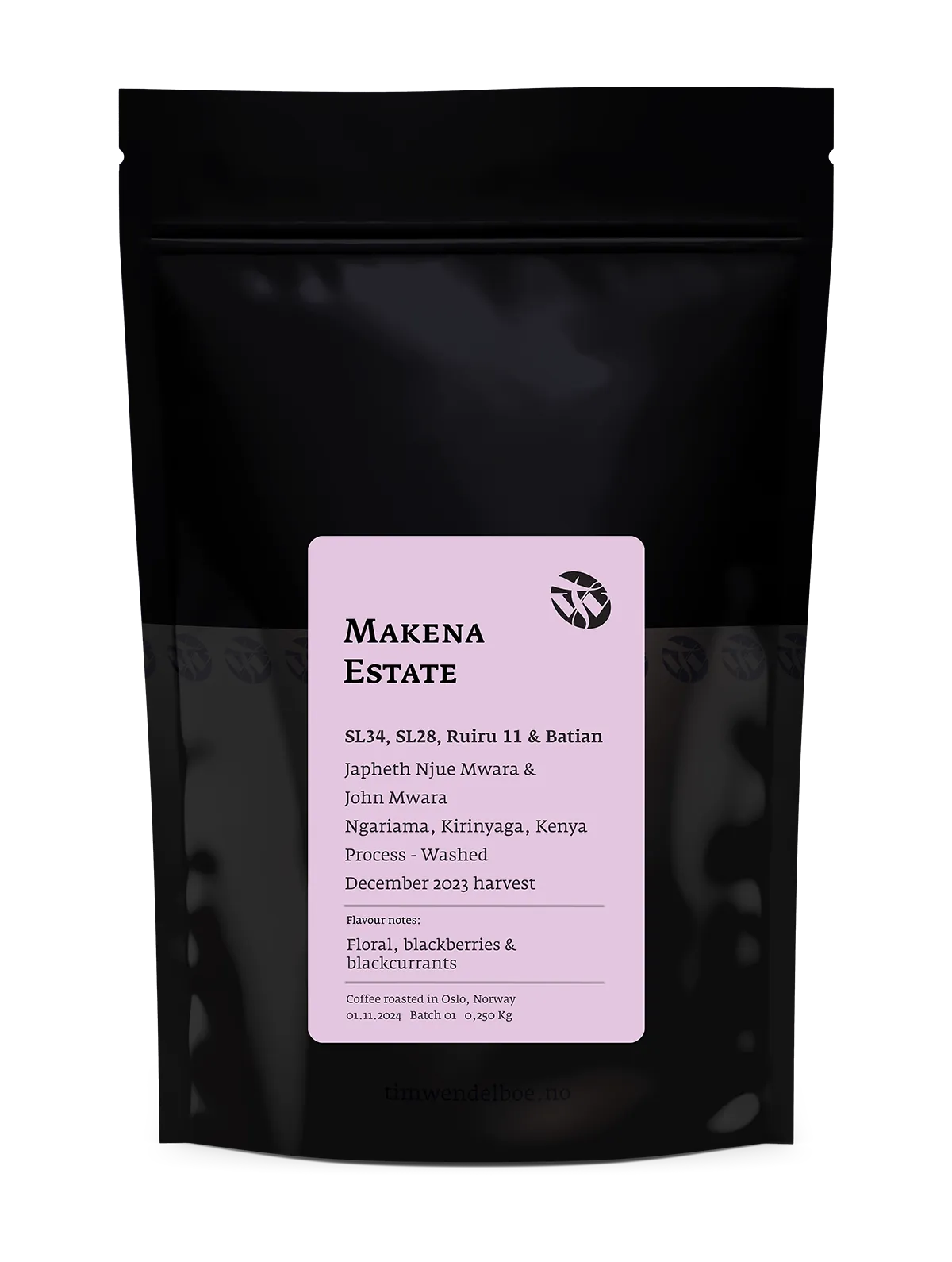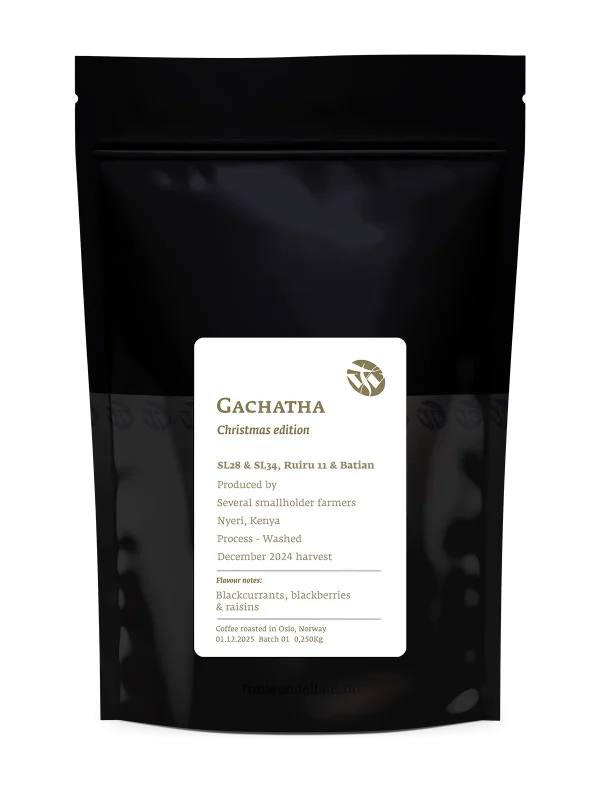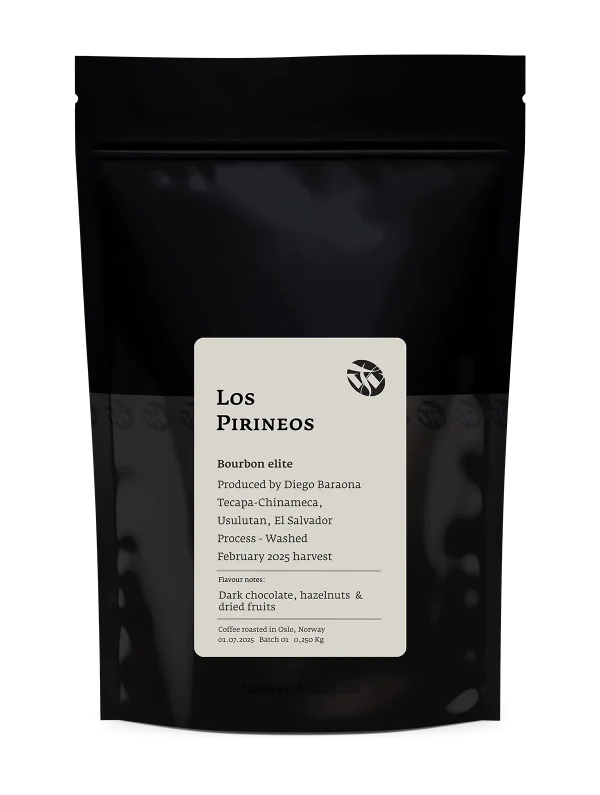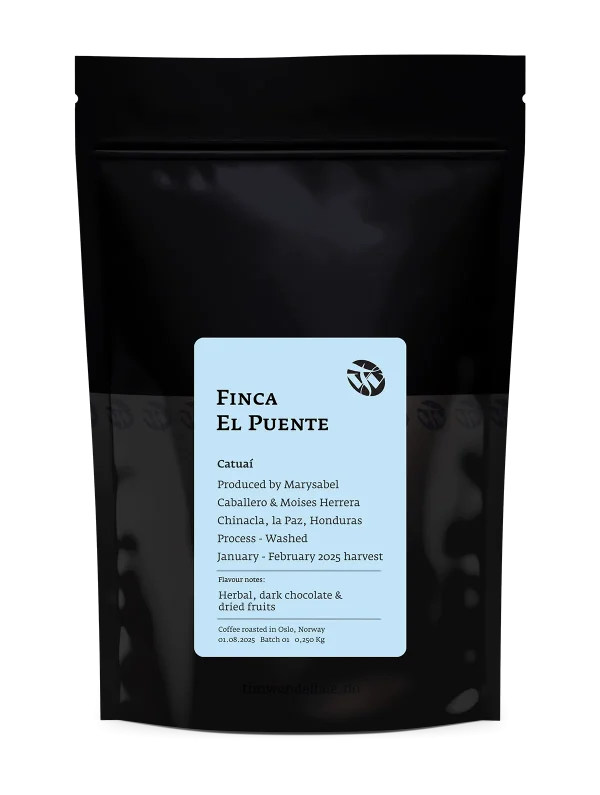| Cultivar | SL28, SL34, Ruiru 11 & Batian |
|---|---|
| Flavour Notes | Floral, blackberries & blackcurrants |
| Producer | Japheth Njue Mwara & John Mwara |
| Country | Kenya |
| Region | Ngariama, Kirinyaga |
| Process | Washed |
| Harvest | December 2023 |
| Roast Profile | Light Roast |
| Contents | Whole Coffee Beans |
| Bag Size | 250g |
Makena Estate
kr225.00
This coffee is from a small estate in Kenya. Expect classic Kenyan blackcurrant flavours and floral notes.
Out of stock
Additional information
Tim's Notes
Makena 20 hectare coffee farm run by Japheth Njue Mwara and his son John Mwara. I visited this farm a few years ago and finally we were able to buy some coffees from this estate.
The farm was one of the first «larger»estates in Kirinyaga and was established in the 1950’s. Therefore it is mainly planted with SL34 and SL28 cultivars as the Ruiru and Batian were released long after the farm was established. However, there is for sure some Ruiru 11 and Batian also in the mix, but still the flavour of the coffee reminds me more of the «old school» Kenyan coffees with pronounced blackberry and blackcurrant flavours that is so common for the SL cultivars from this origin.
The farm was one of the first «larger»estates in Kirinyaga and was established in the 1950’s. Therefore it is mainly planted with SL34 and SL28 cultivars as the Ruiru and Batian were released long after the farm was established. However, there is for sure some Ruiru 11 and Batian also in the mix, but still the flavour of the coffee reminds me more of the «old school» Kenyan coffees with pronounced blackberry and blackcurrant flavours that is so common for the SL cultivars from this origin.
Cultivar
SL28 is one of the most popular cultivars grown in Kenya because of its high yields and superior quality in the cup. It is no secret that I love this fruity cultivar that at its best taste like black currant juice, rhubarb or rose hip tea. SL28 was a selection made by the Scott Agricultural Laboratories in the 1930’s and along with the SL34 cultivar it is the most commonly grown cultivar in Kenya and an important reason why everyone thinks about fruity coffees when they speak of Kenyan coffees.
Ruiru 11 and Batian are both hybrids that were developed in Kenya.
Ruiru 11 and Batian are both hybrids that were developed in Kenya.
Process
Picking and sorting
- The coffee cherries are hand picked by hired seasonal workers. Before processing, the ripe cherries are separated from the inferior ones. The different qualities are processed separately.
- The cherries are depulped and graded by using an old Aagard disc de-pulper that uses water and gravity to sort dense beans from less dense beans. Coffee of different grades are moved to separate fermentation tanks where the parchment coffee, with it’s mucilage still on, is dry fermented for about 12 hours over night. After fermentation the coffee is washed in clean water and graded once again by gravity. The more dense beans are dried separately from the beans with lower density and inferior quality.
- The coffees are dried on elevated drying tables, where defect parchment coffee gets sorted out by hand. Drying the coffee takes about 10 – 14 days. During daytime the coffees are raked to ensure even drying. The drying tables are covered during the hottest times of the day to avoid over heating and also at night time to prevent condensation. The drying process is finished when the moisture content in the coffee beans is between 10-12%. The coffees we buy from Kenya are always vacuum packed before they are shipped to Norway.
Shipping
For our Norwegian customers, we offer three shipping options:
- Pakke i Postkassen - With Pakke i Postkassen, tracking is provided, and delivery is estimated within 2-3 business days.
- Pakke til hentested - The parcel can be collected from a Post in Store, Post Office, parcel locker, or parcel box. This option includes tracking, with delivery expected within 1-5 business days.
- Norwegian Post, No Tracking (Brevpost) - This option does not offer tracking. Delivery is estimated within 2-5 business days.
How To Brew
Filter
- We strongly recommend using the correct measurements and brewing techniques when you brew our coffees. Use a digital scale both to measure water and coffee in order to get consistent results, and we recommend using between 60 to 70 grams of coffee per litre (1000g) of water, depending on the brewing method, water quality and coffee used.
- We strongly recommend using VST filter baskets. Both the 18g, 20g and the 22g basket is great for our coffee. The VST filters makes it a lot easier to extract the espresso properly which gives a lot more sweetness in the cup. They are also more or less identical to each other which makes it easy to be more consistent when brewing on several groups at the same time. You can buy the filters on our webshop, just make sure they fit your machine (ours fits all La Marzocco machines and machines with 58mm filter baskets). With the VST 18g filter basket, we recommend the following brewing parameters: 18-19g freshly-ground coffee, 25-35s brewing time, 35-38g of final brew liquid in the cup, 93°C-94°C brew water temperature.




